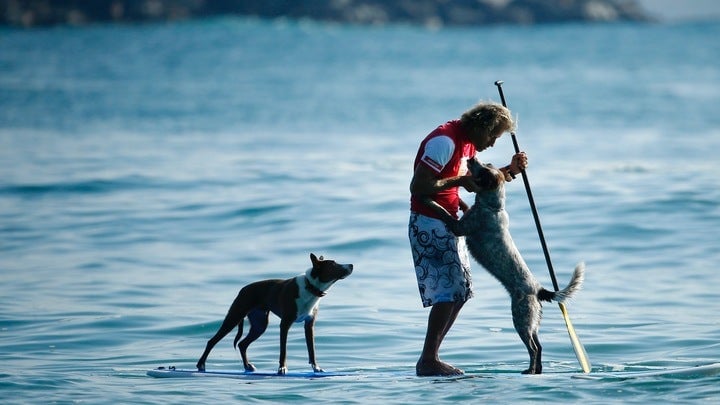Scientists finally found a genetic basis for your dog’s devotion
Put a wolf and a human in a room with a box full of sausage and the wolf will tear into the food, ignoring the person. Try this with a dog and the canine will be torn between two delicious possibilities—gazing at the person or grabbing the treat.


Put a wolf and a human in a room with a box full of sausage and the wolf will tear into the food, ignoring the person. Try this with a dog and the canine will be torn between two delicious possibilities—gazing at the person or grabbing the treat.
Scientists believe that wild wolves were first attracted to human camps by the prospect of food, as far back as 9,000 years ago in Siberia. Through teaching and breeding, the two species became besties. Now, there’s a genetic clue to how we got so sweet on each other.
Princeton University evolutionary geneticist Bridgett vonHoldt recently led a behavioral and genetic study on dog domestication, and isolated a genetic mutation that occurs rarely in wolves but frequently in dogs. This mutation, reported in Science Advances on July 17, bears similarities to the human genetic disorder Williams-Beuren syndrome (WBS).
Humans affected with WBS are extremely social. WBS is caused by the deletion of over 20 genes in a specific chromosome, and those absent genes are believed responsible for the disorder’s symptoms, including super sociability. The research team compared the genetic variant in humans with WBS to aspects of canine and wolf DNA, and found structural similarities.
VonHoldt says that WBS-like hypersociability is “a core element of domestication that distinguishes dogs from wolves,” and suggests that early human breeders may have selected wolves with this genetic mutation, which would have shown friendlier behavior.
Based on a small sample size of 18 dogs and ten wolves, this research is just an initial clue to canine evolution. But the study’s findings have been borne out by the team’s behavioral research, too. As part of the same study, VanHoldt’s team also compared dog and wolf behavior in the presence of people and found a stark difference. Wolves weren’t moved by people and remained on task. Dogs, however, were utterly distracted by the opportunity to socialize: “What they’re really doing is just obsessively staring at this human,” vonHoldt told The Verge. “They don’t really care about the task, they’re just interested in the person.”